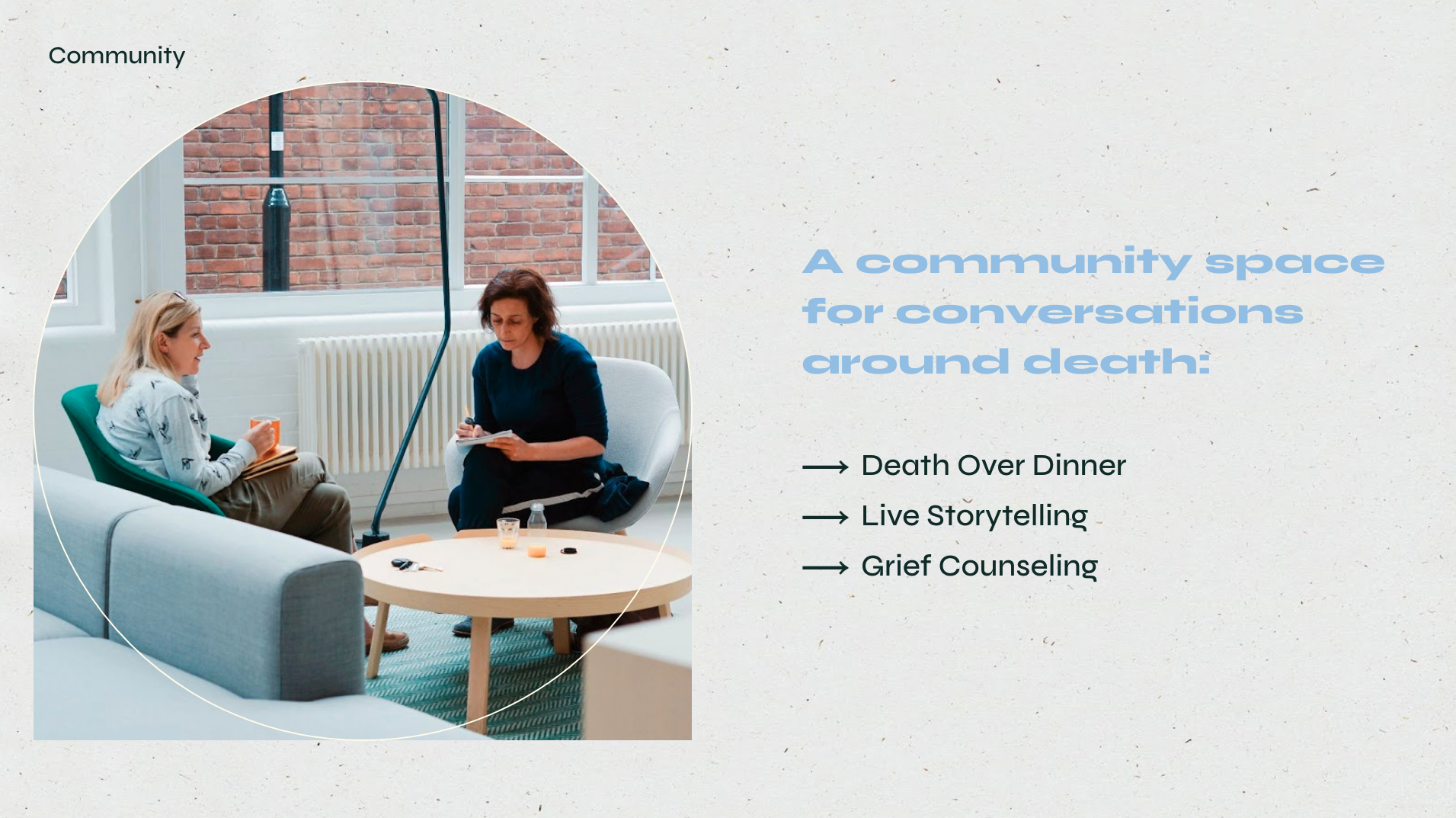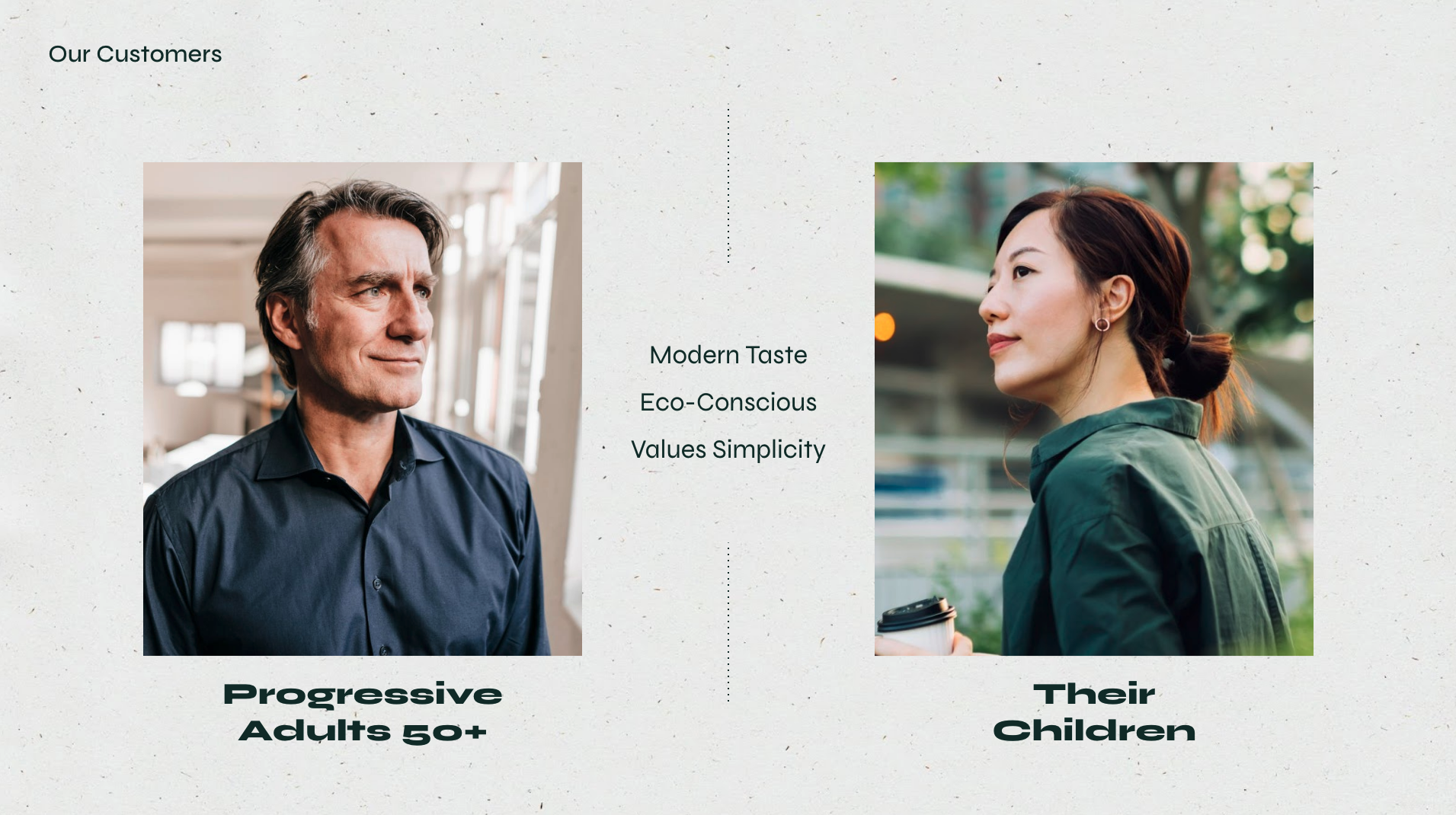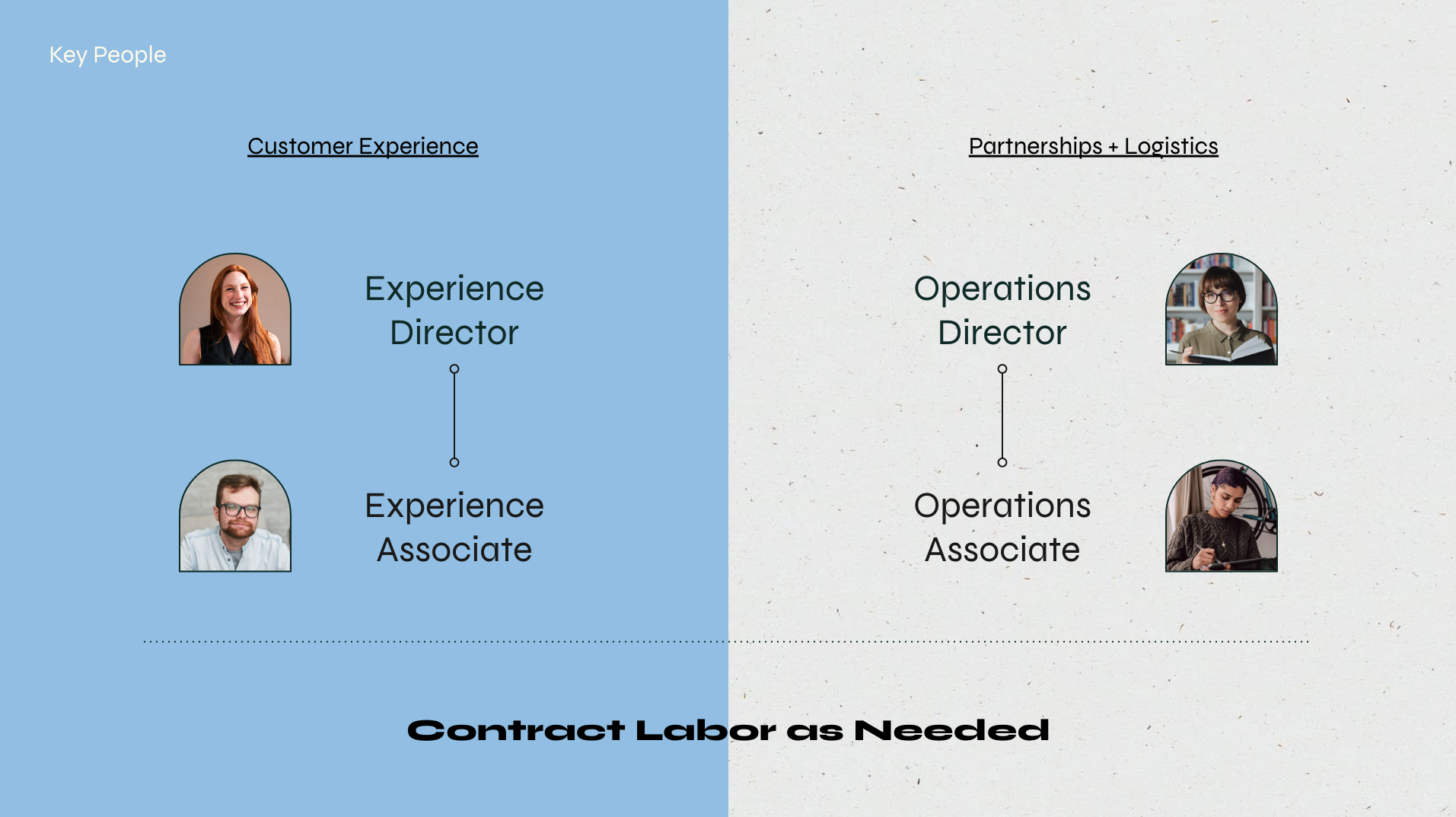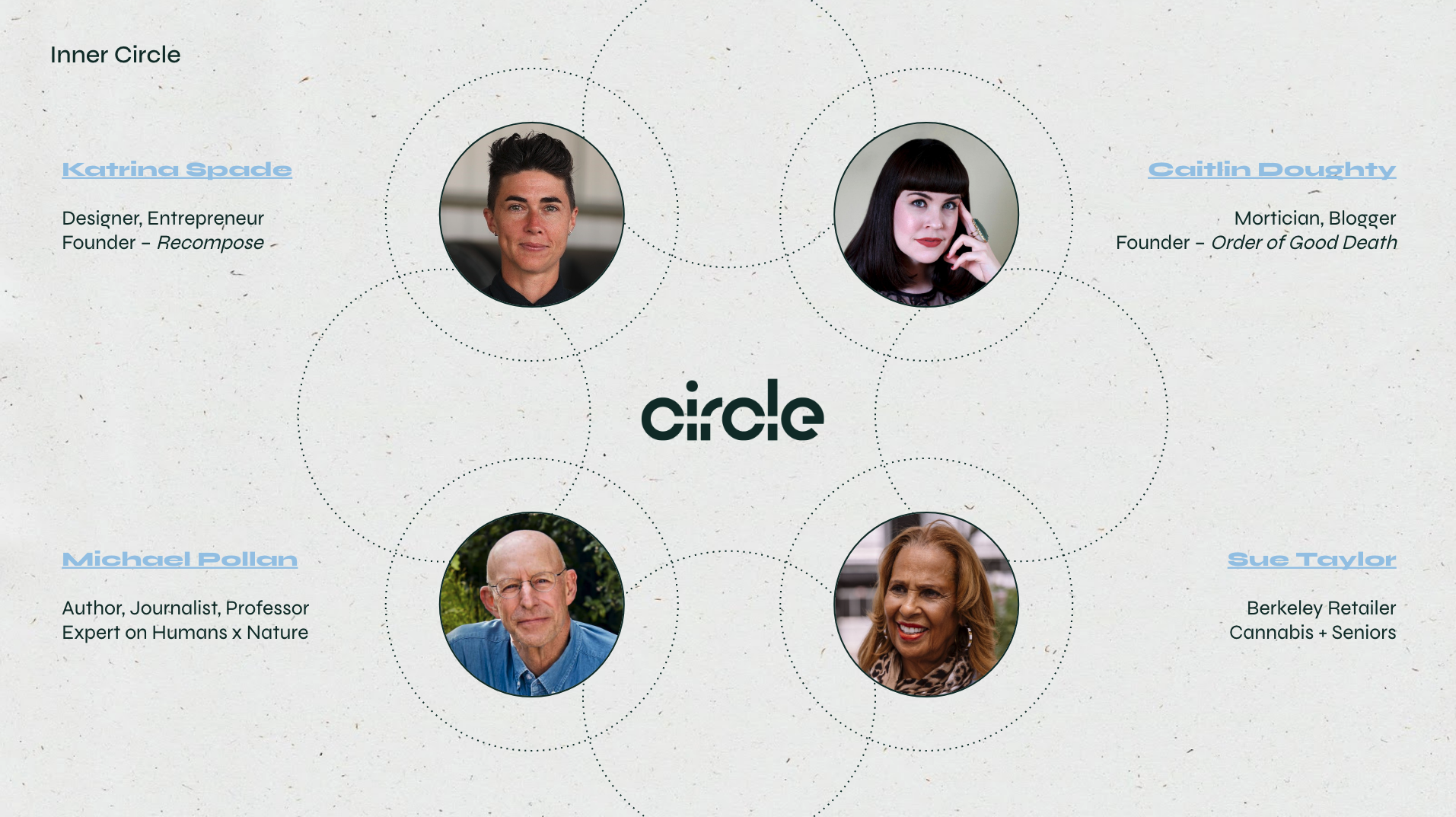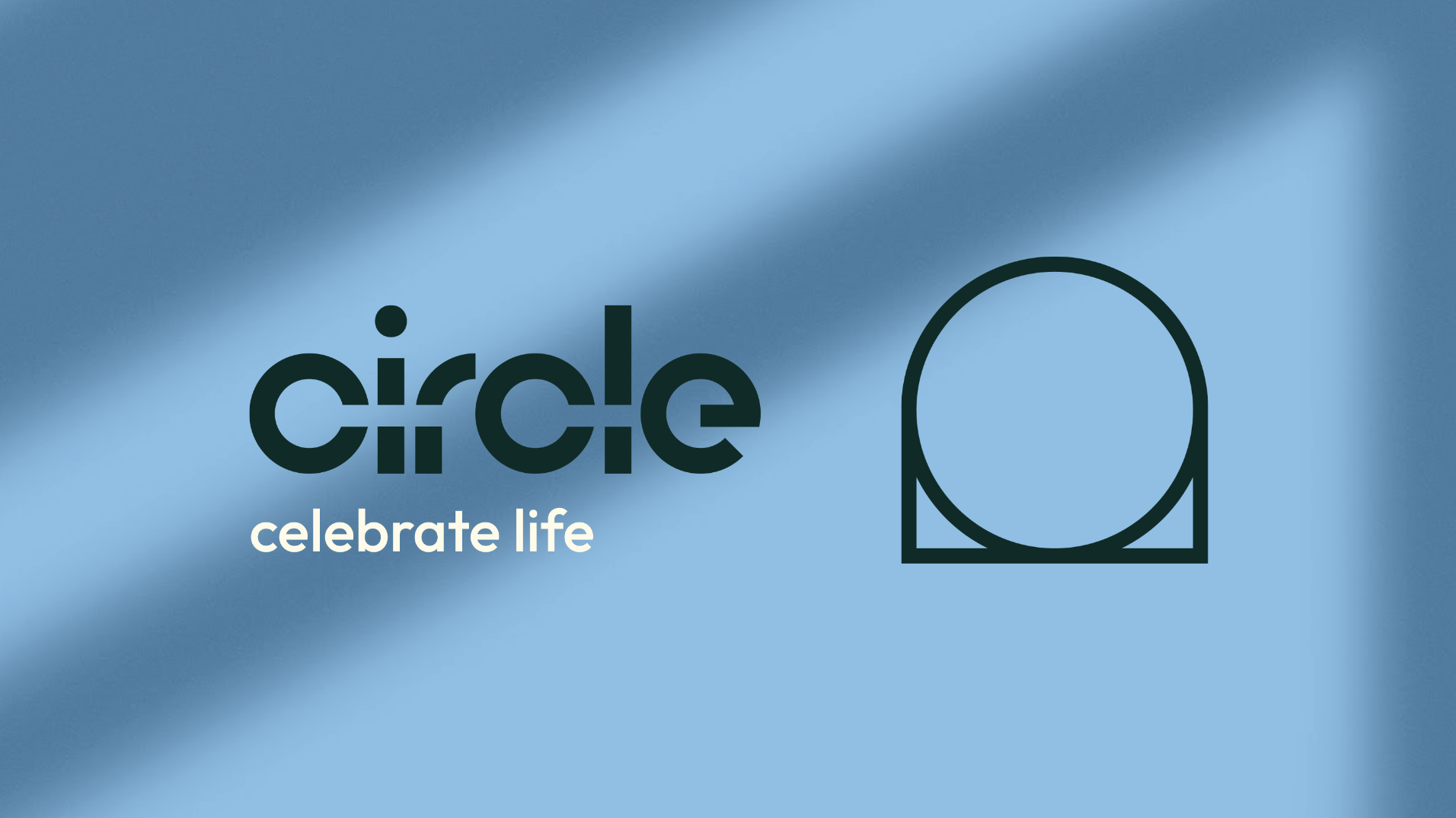Objective:
Develop a viable business plan
Prove consumer desirability
Context:
Capstone project for DMBA program
Desire to innovate a taboo industry
DISCOVERY RESEARCH
Funeral homes are ripe for disruption. There are countless articles about how broken and exploitative the industry has become. The industry started coming under fire for its emotional manipulation and lack of transparency. More recently, their environmental impact is being questioned. Moreover, consumers rarely shop around allowing the industry to grow stagnant. This lack of innovation is compounded by the fact that death is still a taboo topic.
Eigty-nine percent of funeral homes are family businesses. They also enjoy limited competition, with 74% of people considering only one funeral home when making arrangements. This lack of comparison shopping has created an ‘oligopoly’ in the industry, meaning there is little incentive for them to innovate.
While the industry remains idle, our culture is becoming more and more progressive. Americans are becoming less religious, which is leading to fewer traditional burials and a growing cremation rate. Startups are also working towards innovating the funeral industry through technology and design. And consumers are beginning to consider sustainability, across all aspects of their life – and death.
SURVEY + INTERVIEWS
We conducted an online survey with friends and family and confirmed that most people had negative experiences with funeral homes. They were frequently described as dark, drab, depressing, and outdated. We also interviewed people that recently lost someone and were responsible for making final arrangements.
What we heard
-

Sustainability
“I have environmental concerns when it comes to [traditional] burial practices.”
-

Support
“I want an advocate who can provide emotional support and handle everything for me.”
-

Space
“The space itself informs how you should feel. I don’t want to feel like I have to be sad.”
THE OPPORTUNITY
We want to shine light on something dark and go where other entrepreneurs are unwilling. In recent years, we’ve seen this happen with a number of industries, such as sex and cannabis. We want to follow their lead and change the culture and language around death.
CONCEPT
Circle is a modern funeral home specializing in simple, sustainable end-of-life celebrations. Our brand sets us apart from traditional funeral homes. We curate a contemporary aesthetic and host beautiful memorials in a unique, nature-inspired venue.
Brand Identity
Our brand is centered around the idea that circularity is a principle of life. The concept of a circle conveys the cyclical nature of life and death, nods to our circular design practices, and our commitment to create a circle of trust within our close-knit community. We use a clean, simple, and airy aesthetic and a natural color palette to create a modern, uplifting experience across all of our brand touchpoints.
Retail Strategy
We envision having a retail presence, what we refer to as our ‘Jewel Box,’ off 4th street. An open and airy location with big windows and lots of plants and natural light. The neighborhood is ideal due to its proximity to upscale retail. We don’t want to be on main street. We want to catch people walking back to their car – let them know what we are all about and introduce them to all the new solutions for deathcare.
Community Hub
Beyond a beautiful memorial space, we envision the Jewel Box becoming a community hub. We plan on hosting everything from live storytelling events to grief counseling sessions. Ultimately, these initiatives are about changing the culture and language around death.
BUSINESS MODEL
Historically, the funeral home industry has been vertically integrated, meaning the home owns all the elements of the experience from transporting the body to the funeral preparations and everything in between. However, the old ways of doing business are coming to an end and there is an opportunity for a horizontal model. There are a variety of new startups that now streamline body disposal or offer interesting ways to commemorate someone's ashes. These new companies are often cheaper and better than traditional funeral homes. This is not an easy place to compete. We see the real potential in events, something Silicon Valley will have a much harder time disrupting. We plan to partner with these new services and really focus on elevating the memorial experience. We also know that this is where funeral homes already make their money.
Revenue Streams
Our primary revenue stream will be our memorial packages. Clients can choose from 3 tiers varying in the quality of food, drinks, and flowers to best fit their needs and budget. Other revenue streams include mark-up fees for our body disposal services and retail sales.
Preferred Partners
We view deathcare startups as potential partners, not competitors, and plan to work with Tulip, a direct-to-consumer cremation service, and Doola, which offers a similar service using aquamation. We also have relationships with cemeteries that offer natural burial.
CUSTOMER ACQUISITION
We are targeting baby boomers in progressive cities, along with their adult children who are often responsible for making final arrangements. Because families are only willing to drive so far, the majority of our marketing will be hyper-local. Furthermore, it can be split into two types: pre-and post-death. Before a death occurs, we aim for brand awareness. After a death occurs, we focus on SEO.
Challenge: When someone dies people go into autopilot mode. They tend to go to the closest, easiest, most familiar place. We need to break that habit.
Brand awareness before a death occurs
SEO after a death occurs
OPERATIONS
Key Employees
The Experience Director and Experience Associate will be responsible for all customer-facing interactions, including family consultations, event planning, and run-of-show. The other half of our organization will be devoted to backend operations. Our Operations Director and Operations Associate will manage partnerships and logistics including vendor coordination, inventory management, orders and payments.
Advisory Committee
An informal advisory committee meets bi-annually to provide guidance. The members represent professionals from industries directly related to Circle’s mission and target market.
FINANCIALS
The majority of our upfront costs will go towards building out our physical space. The average price per event will be $11,475 – just under the CA average. With a gross profit margin of 57%, we anticipate breaking even at month 3, repaying our upfront costs at month 22, and reaching $2.7M in revenue by Year 3.








